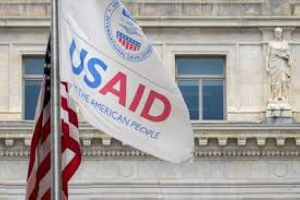As a result of global warming and climate change, strange weather is likely to be rampant in the years to come and this is likely to cause disasters like the one we are seeing now. How prepared are we to deal with these natural and even man made disasters? What is our country's disaster policy? Is NADMO well equipped to deal with these challenges? How are we preparing to deal with these unavoidable disasters when they hit? Absolutely nothing and we experience floods in Accra every year. As sea levels rise globally due to global warming, low lying areas are going to be submerged under the sea in the next several years as we experience strange climactic changes like the one that brings heavy rainfall in a sustained manner. We may all wake up one day to see our homes swept to the sea owing in part to our own inaction and our bad habits.
Either our policy makers are ignorant of the long term effects of global warming or they just don't care about the seasonal floods that hit Accra because the floods don't affect them personally. It could also be that they are bankrupt of ideas on how to solve this. As a first step, it does not take the genius of a rocket scientist to discover that Accra has one of the worst drainage systems in the World. So improving the drainage system is where we should start from. Then our mentality of throwing just everything into our gutters eventually choking them should be dealt with through a sustained and all inclusive public education campaign all over the country.
This is where a more efficient disaster management and prevention board comes in. We should have a more efficient and proactive national disaster management and prevention board. We need a National Disaster Management and Prevention Day set aside as a national holiday to educate the people on disaster prevention ---- seminars, educational programmes on TV and radio, disaster prevention drills, disaster evacuation drills, etc, etc---- this needs to be organized nationwide not only in regional capitals but also in district capitals and all major town and villages around the country. Disaster drills organized on regular basis is an effective way of dealing with the aftermath of disasters when they occur. It equip people with the know how on how to respond in such circumstances. Disaster drills should become a way of life for us. For example, how to use sand bags to minimize the effects of flooding. The basic stuff that must be taught.
A new and proactive NADMO would engage in not only what is listed above but also train volunteers on how to administer first aid, evacuate the wounded, build multi purpose evacuation and shelter centers, designate and clearly demarcate evacuation routes to shelter points etc. This new body should coordinate the activities of the Police, the military, the Fire Service, and other bodies involved in disaster management. The Police should be used to prevent crimes such as looting and robbery by those who would like to take advantage of the situation, the military should be used to supply the people affected by the disaster such life lines like clean drinking water and food like canned foods and biscuits that can be eaten without cooking, the Field Engineers Regiment of the Ghana Army should be immediately deployed to rebuild damaged roads to prevent areas being cut off, the Air Force can be used for food drops if need be, and incase of floods like we are experiencing now , the navy with its speed boats (I'm not sure if we have any) can be deployed to assist in evacuations. All this needs to be well coordinated. Disaster prevention and management should be incorporated into our schools curriculum from Primary schools to JSS to the Universities. All levels of the Educational ladder.
Disaster prevention and management should be a way of life. It is absolutely essential. When constructing new schools, it' s design and construction should include a multi purpose gymnasium that can serve as evacuation center and shelter during disasters and as a place for indoors sports, and an auditorium for the school in normal times. As a matter of policy all public buildings should have clearly marked exit points, well lit and easily noticeable and accessible. In addition to the main exits, there should be clearly marked emergency exits, fire extinguishers placed at all vantage points, and a water hydrant. All public buildings taller than two floors should have at least two stairs one at each end big enough for easy entry and exit of the building just in case. This must be done in addition to a centrally located stairs or elevators.
A revitalized NADMO with energetic people, well trained in disaster prevention and management, committed to and passionate about their job will implement and enforce these standards, organize educational programs to raise awareness about disasters . This new organization should move from being a passive body in disaster management to a more active role in disaster prevention and management. The work of distributing relief materials should be secondary and NEVER the primary role of this organization. It has to focus (or re-focus) on its primary task of preventing disasters in the first place and managing disasters when they occur.
Ben Ofosu-Appiah,
Accra.
The writer is a senior socio-political and economic analyst and policy strategist. He welcomes your comments: do4luv27@hotmail.com
Opinions of Sunday, 8 June 2014
Columnist: Ofosu-Appiah, Ben














